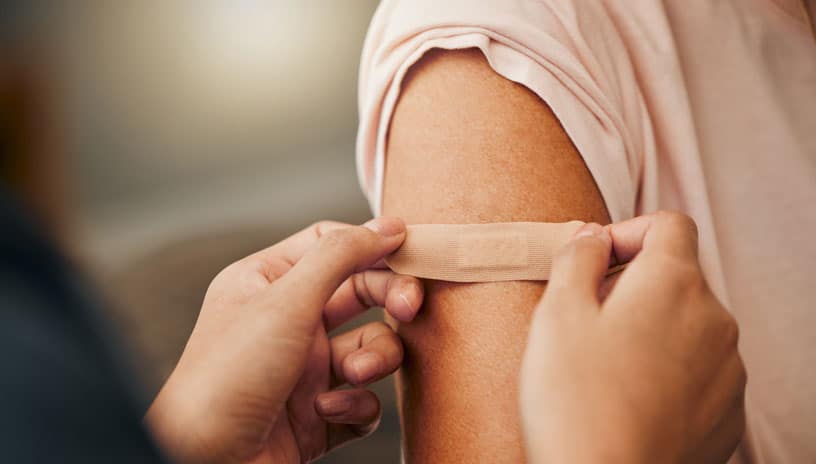Understanding How Vaccines Work

The science behind immunity and how vaccines protect us from diseases.
Vaccines are among the most significant advancements in modern medicine. They save millions of lives each year. Yet, for many, the science behind vaccines remains a mystery. Let’s examine how vaccines work and help our bodies build immunity.
The Immune System: Your Body’s Defense Team
The immune system is your body’s natural defense against harmful invaders. These invaders are known as pathogens, and include viruses, bacteria, and other infectious germs.
When a pathogen enters your body, your immune system recognizes it and mounts an attack against it. This process involves the production of antibodies, which are special proteins that target and destroy pathogens.
Once your immune system has responded to a specific pathogen, it remembers it. Thus, your body reacts quickly and effectively if you experience the same pathogen again.
How Vaccines Mimic Infection
Vaccines work by mimicking an infection without causing the disease. They introduce a harmless version or component of a pathogen into your body, prompting your immune system to respond. As a result, your immune system produces antibodies and prepares to fight the pathogen. Most importantly, your immune system memorizes how to protect the body if the pathogen is encountered again.
Here are the main types of vaccines and how they work:
Weakened-Virus Vaccines:
These vaccines use a weakened form of the virus or bacteria. It stimulates a strong immune response without causing disease. Examples include the measles, mumps, and rubella (MMR) vaccine and the chickenpox vaccine.
Inactivated vaccines:
These vaccines use specific pieces from a pathogen, like a protein or sugar, to trigger an immune response. Examples include the HPV and meningococcal vaccines.
mRNA vaccines:
Vaccines containing mRNA represent the most recent advancement in vaccine technology. These vaccines instruct your cells to make a harmless piece of the pathogen – typically a protein. Your immune system then recognizes this protein as foreign and builds immunity. The COVID-19 vaccines developed by Pfizer and Moderna are examples.
How Vaccines Work to Protect the Public
One of the greatest benefits of vaccines is their role in building herd immunity. Herd immunity occurs when a significant portion of a population becomes resistant to a disease. Herd immunity also protects those who are unable to receive vaccinations, such as newborns and individuals with certain medical conditions.
Herd immunity is crucial for preventing outbreaks and eradicating diseases. A virus can only survive and replicate if it can enter a host (person or animal). If a virus can’t find a new host, it cannot survive. Vaccines improve herd immunity by limiting potential hosts and reducing transmission of specific pathogens.
Vaccine Safety: Rigorous Testing and Monitoring
Vaccines undergo extensive testing before receiving approval for public use. Clinical trials help ensure vaccine safety and effectiveness. Even after approval, vaccines are continuously monitored for side effects. This process ensures that vaccines remain one of the safest and most effective ways to prevent disease.
The Impact of Vaccines
The success of vaccines is evident in the eradication and control of many diseases in the US and worldwide. For example, a vaccine led to the eradication of smallpox, a disease that once killed millions. A global vaccination campaign in 1980 accelerated this effort.
Polio, another devastating disease, is now close to eradication. Vaccines have also significantly reduced illnesses like measles, tetanus, and whooping cough.
Why Understanding How Vaccines Work Matters
Vaccines save lives, reduce the burden of preventable illnesses on healthcare systems, and ensure healthier communities. Furthermore, they help prepare our immune systems to fight diseases effectively. Vaccines and their impact on public health are continually monitored in the US.
Let’s remain informed and committed to understanding how vaccines work. Seeking information from reputable sources and trusted healthcare providers empowers us to make informed decisions for ourselves and those we love. Most importantly, your decision to protect your health and contribute to healthier, safer communities matters for everyone.

